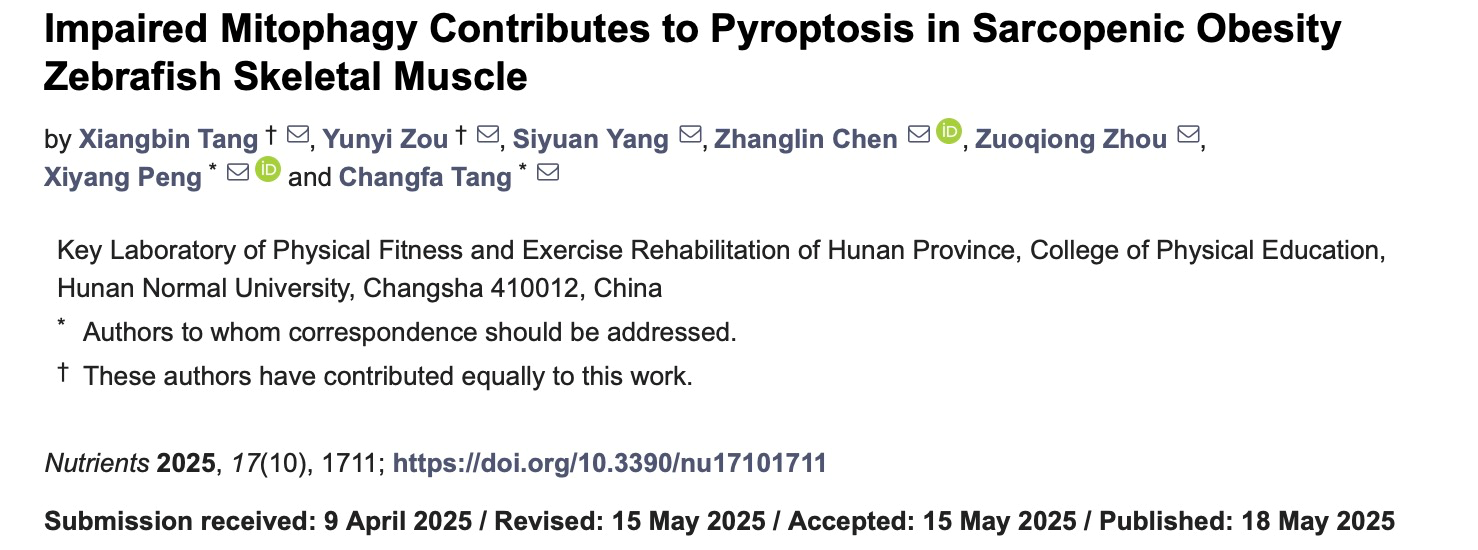
A significant study titled "Impaired Mitophagy Contributes to Pyroptosis in Sarcopenic Obesity Zebrafish Skeletal Muscle" has been published in the journal Nutrients, a JCR Q1 publication. This research, carried out by a dedicated team from Hunan Normal University, explores the molecular mechanisms involved in sarcopenic obesity (SOB), a condition characterized by the coexistence of muscle atrophy and obesity.
The study reveals that a high-fat diet (HFD) over 16 weeks induces sarcopenic obesity in zebrafish, marked by an obese phenotype, skeletal muscle atrophy, and decreased swimming capacity. The researchers found that mitochondrial content and function were significantly impaired in SOB zebrafish skeletal muscle, primarily due to defective mitophagy regulated by the PTEN-induced putative kinase 1 (PINK1)/Parkin (PRKN) pathway. Furthermore, the study identified the activation of NOD-like receptor protein 3 (NLRP3)/gasdermin D (GSDMD) signaling, leading to pyroptosis, an inflammatory form of cell death, in the skeletal muscle of SOB zebrafish.
This research provides profound insights into the molecular pathogenesis of sarcopenic obesity, emphasizing the critical roles of impaired mitophagy and pyroptosis in mediating skeletal muscle damage. These findings offer potential therapeutic targets for the prevention and treatment of SOB, a condition with significant public health implications due to its rising prevalence and associated comorbidities.
This study was jointly completed by Xiangbin Tang, Yunyi Zou and others, and Xiyang Peng and Changfa Tang are the corresponding authors. This project is supported by the National Natural Science Foundation of China, the Key Research Development Program of Hunan Province, and the Postgraduate Scientific Research
Editor: Peng Xiyang
First-Round Review Editor: Guo Enkai
Second-Round Review Editor: Bashir Mehvish